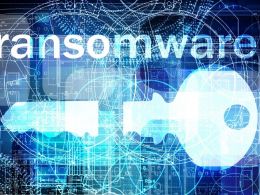
Kaseya recovers data stolen in ransomware attack with mysterious decryption tool
The IT firm denies that it paid a ransom to the Russian hacker group in exchange for the decryption tool. IT software provider, Kaseya, has announced it is providing its clients with a decryption tool to recover customer data that was locked in a ransomware attack earlier this month.In a July 26 notice on its website, the global technology firm stated it has been assisting its customers with the restoration of their encrypted data in partnership with cybersecurity company Emsisoft.It has been issuing a mysterious “decryptor” tool enabling customers to access data that had been locked by....
Related News
The master decryption keys for the ransomware, CrySis, has been released to the public, news that will undoubtedly come as a pleasant surprise to those victimized by the malware. Another Ransomware Tool Bites the Dust. The decryption keys first became public when a user posted them on a the forums of bleepingcomputer.com. The user, known only as crss7777, posted the decryption keys on the forum at 1 AM Sunday morning. Researchers at Kaspersky Lab, who have recently launched an anti-ransomware campaign in conjunction with Intel Security and international law enforcement this summer, quickly....
According to a cyber-security survey, 33% of UK companies are buying Bitcoin in anticipation of ransomware attacks. This comes after a Canadian university paid 20,000 Canadian dollars in Bitcoin for the encryption keys to their data this week. Canadian university ransomware attack. More than 100 of the computers at the University of Calgary had been infected with the ransomware, causing email and other files to become encrypted. After their IT department spent countless hours trying to find a solution to the attack, it was resolved that they would pay the ransom money of CAD $20,000 (USD....
Leading news sites were recently used to launch a bitcoin ransomware attack on unsuspecting readers. Ransomware has become the malware of the season. Other malware, viruses and trojans are things of the past. Cyber criminals seem to find bitcoin ransomware more profitable than other malicious software. The number of bitcoin ransomware attacks stands evidence to it. Bitcoin ransomware is a malware that encrypts all the files and folder on any computer it infects. Once the data is encrypted, it will show a message demanding the infected user to pay a certain amount in bitcoin to a wallet....
Paying the fee associated with a ransomware should always be seen as a last resort. There is no guarantee the decryption keys will restore full system access or revert all data back to its original state. The University of Calgary is the most recent victim of ransomware attacks, and the school paid CND$20,000 in Bitcoin to get rid of the malware. Despite paying the fee, not all systems are back online, as the provided decryption keys do not restore all systems automatically. Trouble started brewing for the University of Calgary on May 28, and students were advised not to connect their....
A global ransomware attack derived from a leaked NSA tool successfully breached into 100,000 computer systems and servers across 99 countries. During the first day of the attack, the focus was set on Bitcoin instead, which had minimal involvement in the ransomware attack, rather than the use of an NSA tool developed using taxpayers’ capital. What actually happened. On May 12, the WannaCry ransomware began to spread across the world, attacking 75,000 computers in a matter of hours. According to MalwareTech, WannaCry targeted and encrypted 100,000 computers in a period of 24 hours, quickly....





